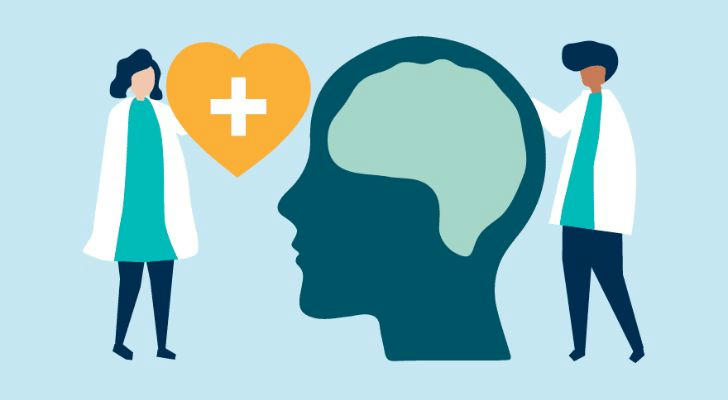Unlocking Potential: The Transformative Power of Online Psychology Education
With mental health needs reaching critical levels globally – 970 million people worldwide experienced mental disorders in 2022 (WHO) – online psychology programs have emerged as vital pipelines for training compassionate professionals. This expanded guide examines how digital learning platforms are reshaping psychological education through academic innovations, clinical preparation, and career-focused training.

The New Era of Psychological Training
Revolutionized Learning Modalities
Modern online psychology programs combine cutting-edge technology with evidence-based pedagogy:
- Immersive VR Training: Students practice cognitive behavioral therapy (CBT) techniques through platforms like Oxford VR, treating virtual patients with anxiety disorders
- AI-Powered Case Analysis: Machine learning algorithms provide instant feedback on diagnostic decisions using 10,000+ archived patient histories
- Global Clinical Rotations: Partner institutions across 30 countries offer telehealth practicum opportunities
Accreditation remains paramount, with 83% of employers requiring APA or CACREP accreditation for licensure eligibility (APA Workforce Survey 2023). Prospective students should verify program status through the APA's accredited programs database, paying particular attention to:
- Faculty qualifications (minimum 75% licensed practitioners)
- Clinical placement success rates
- Graduation/licensure exam pass rates

Five Pillars of Effective Online Learning
1. Adaptive Scheduling Solutions
The asynchronous nature of online programs enables:
- Working Professionals to complete coursework during off-hours (78% maintain full-time jobs)
- International Students to access materials across time zones
- Caregivers to balance family responsibilities with studies
Leading programs like USC's online Master of Social Work offer 24/7 access to recorded lectures paired with weekly live seminars, creating flexible yet structured learning environments.
2. Cost-Effective Career Preparation
Compared to traditional programs, online students save $17,420 annually on average (NCES 2023) through:
- Elimination of campus fees ($2,300/year average)
- Reduced textbook costs (80% courses use open educational resources)
- Localized clinical placements avoiding relocation expenses
Financial aid options have expanded dramatically, with the NIH now offering $28 million annually in behavioral health workforce scholarships specifically for online learners.
3. Clinical Competency Development
Contrary to misconceptions, online programs deliver robust practical training:
- Virtual Reality Simulations: Recreate complex patient interactions through platforms like SimX
- Telehealth Practicums: Supervised sessions via HIPAA-compliant video platforms
- Community Partnerships: Over 500 regional mental health agencies now accept online students
The University of North Carolina's online clinical psychology program reports 94% practicum placement rates, matching in-person program outcomes.
4. Specialization Pathways
From addiction counseling to neuropsychology, online programs offer 120+ specialized tracks:
- Trauma-Informed Care: Integrates latest PTSD intervention research
- Health Psychology: Focuses on chronic illness management techniques
- Cross-Cultural Therapy: Prepares for diverse patient populations
These concentrations align with market demands – substance abuse counselor roles are projected to grow 22% through 2031 (BLS).
5. Technological Fluency Development
Digital-native graduates enter the workforce equipped with:
- Teletherapy platform expertise (BetterHelp, Talkspace)
- Electronic health record (EHR) management skills
- Data privacy compliance knowledge (HIPAA/HITECH)
Navigating Common Challenges
Maintaining Engagement
Combat isolation through:
- Mandatory weekly video case conferences
- Regional student meetup groups
- Faculty virtual office hours (minimum 10hrs/week)
Clinical Skill Acquisition
Ensure programs provide:
- High-fidelity patient simulators
- 500+ supervised clinical hours
- Recorded session reviews with licensed supervisors
Licensure Preparation
Verify programs include:
- State-specific jurisprudence courses
- Mock licensing exams (EPPP practice tests)
- License application workshops
Career Transformation Case Study
Dr. Alicia Mendez, Online PsyD Graduate
"After a decade teaching high school, Capella University's online program allowed me to:
- Complete coursework during summers/school breaks
- Conduct autism research via virtual child development labs
- Secure a pediatric neuropsychology residency at Boston Children's Hospital
The program's emphasis on tele-assessment training proved crucial – 60% of my current caseload involves remote evaluations."
Future-Focused Curriculum Trends
- AI Ethics Training: Addressing algorithmic bias in mental health diagnostics
- Climate Anxiety Interventions: New courses on eco-related distress
- Intergenerational Trauma Certification: Combing epigenetics with therapy models
- Psychedelic-Assisted Therapy Prep: Anticipating FDA approvals
Essential Success Strategies
Tech Readiness:
- Minimum: i5 processor, 8GB RAM, HIPAA-compliant webcam
- Recommended: Dual monitors, noise-canceling headphones
Time Management:
- Block scheduling using MyStudyLife app
- 25-minute Pomodoro technique sessions
Professional Networking:
- Join APA's online student community
- Present at virtual conferences like PsyberSpace
Self-Care Practices:
- Mandatory mindfulness breaks during study sessions
- Utilization of campus mental health resources

The Road Ahead
As 72% of therapy sessions now occur remotely (APA 2023 Telehealth Report), online psychology education has evolved from alternative option to industry standard. By combining academic rigor with technological innovation, these programs empower a new generation of mental health professionals equipped to meet 21st-century challenges.
Prospective students should:
- Compare programs using the APA's interactive tool
- Schedule virtual info sessions with admissions teams
- Connect with alumni via program LinkedIn groups
The future of psychological care begins with accessible, technology-enhanced education – your journey starts here.
